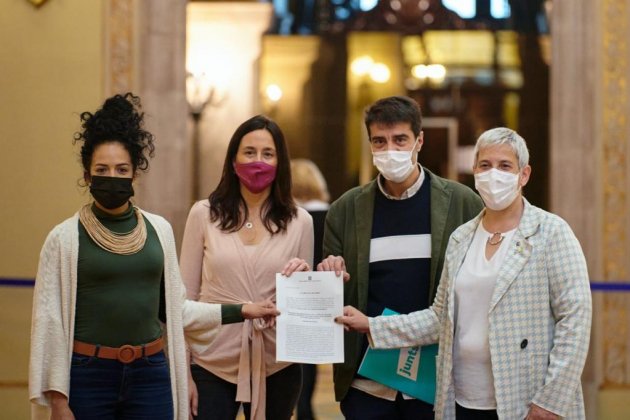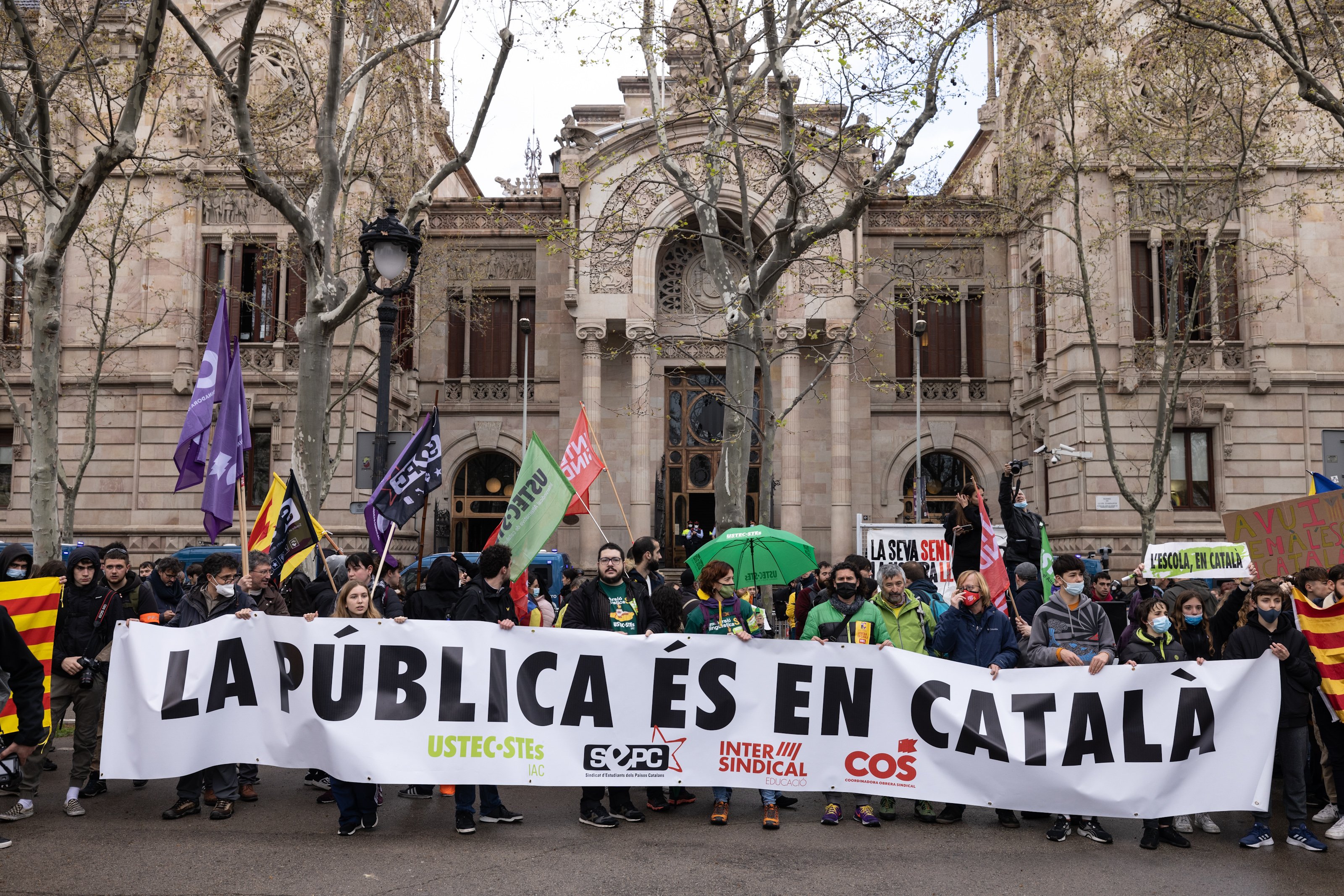A day after the strike against the court-imposed imposition of a 25% Spanish language quota in the classrooms of Catalonia, and just one day before the high court deadline for compliance with this new norm arrives, four parties in the Catalan Parliament - ERC, Junts, PSC and Comuns - have proposed a manoeuvre to modify the legislation and use it to combat this imposition. This Thursday at noon the four groups registered a proposed amendment to Catalan Law 1/1998 on Language Policy, which is expected to be addressed in the Bureau next week and passed by the full Parliament on April 5th and 6th. The parties have explained that the amendment, which is in Article 21, is based on updating the consensus reached when the law was created, a consensus on the language model of the school, which must have Catalan "as its center of linguistic gravity", but also guaranteeing the presence and mastery of all official languages. Despite the agreement, many voices from around the independence movement were highly critical of the proposal on Thursday afternoon, including sectors of Junts, former president Quim Torra, the exile body Council for the Republic, former ERC leader Josep Lluís Carod Rovira and the entirety of the CUP, which had already drafted its own alternative proposal.
The four-party amendment project announced on Thursday is based on the premise that Catalan is "Catalonia's own language" and "the language normally used as the language of instruction and learning in the education system". But for the first time, the amendment also incorporates Spanish as the language used in schools, and states that it will be each school that decide on its use, taking into account its own sociolinguistic situation: "Spanish is also used in the schools under the terms set by the language projects of each centre, in accordance with the criteria set out in section 3". This section states that in order to achieve oral and written mastery of Catalan and Spanish at the end of compulsory education (4th year ESO), the teaching of the official languages "must have an appropriate presence guaranteed" in the curricula and in the educational projects of each school centre. With this move, the decision can be delegated to the school centres themselves and the definition of an absolute percentage is avoided.
The new regulation thus emphasizes that school language plans will be based on the results of evaluations of student abilities in the official languages, with the starting point being the autonomy of the schools and their own adaptation to their particular sociolinguistic situations. In addition, it advocates taking a wide-ranging and inclusive approach to learning resources and language uses, including both teacher use in the classroom and student relationships, new technologies and group work, among others. It also includes the removal of an article from the law, which stated that "students who join the education system of Catalonia late must receive special and additional support for teaching Catalan".

This agreement between the parliamentary groups is not intended to replace the decree announced on Tuesday by the Catalan minister of education, Josep Gonzàlez-Cambray, but rather, is a separate step by the Catalan chamber to defend the Catalan language, said sources close to the four-party agreement. The minister Cambray explained yesterday that the government is preparing a decree to amend the Catalan education law as a response to the Catalan High Court (TSJC) ruling and guarantee that the 25% Spanish percentage will not be applied in classrooms.
Have they talked to the teaching community?
The Catalan government's proposal focuses on the education law, while the political groups have decided to address the language policy legislation. The reason? According to the parties, the education law is more sectoral while that of language policy is more general. All the parties stressed that they have dedicated time to reaching consensus and form their proposals, and when asked if they have talked about this change with the teaching community, they limited themselves to answering that they have talked "with a lot of people".
The CUP does not back the amendment
One group which does claim to have spoken to the teaching community is the CUP, which has not participated in the four-party agreement made by ERC, Junts, PSC and Comuns. The left-wing party affirms that it was not invited into this consensus and just yesterday the party presented a bill to protect Catalan by modifying the Catalan education act in the face of "the immobility of the Generalitat government". The document, consulted by ElNacional.cat, proposes a change in Article 14 of the 2019 education law, so that it lays down that Catalan is the only vehicular language.
Currently, Catalan Law 12/2009 on Education contemplates in the mentioned article that "the language project must include the aspects related to the teaching and use of languages in the centre, among which are in any case, the treatment of Catalan as a vehicular language and language of instruction". The nuance that the CUP is proposing to modify is to make Catalan "the only vehicular language". In addition, the left-wingers also add a new point: that the school language plan must incorporate the guarantee "of the principle of equality and non-discrimination between schools on the basis of their language plans."
After registering this bill, the CUP released a statement criticizing the Catalan government for abandoning the management of schools in the face of the 25% Spanish quota ruling: "In the face of the success of the educational community's strike and the protests today, the CUP has registered a new legislative proposal that protects language immersion and defines Catalan as the only vehicular language", said the party, assuring that the proposal has the consensus of the educational community and has been shared with one of the major educational trade unions.

